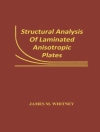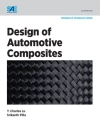This book presents a novel, generalized approach to the design of nonlinear state feedback control laws for a large class of underactuated mechanical systems based on application of the block backstepping method. The control law proposed here is robust against the effects of model uncertainty in dynamic and steady-state performance and addresses the issue of asymptotic stabilization for the class of underactuated mechanical systems.
An underactuated system is defined as one for which the dimension of space spanned by the configuration vector is greater than that of the space spanned by the control variables. Control problems concerning underactuated systems currently represent an active field of research due to their broad range of applications in robotics, aerospace, and marine contexts.
The book derives a generalized theory of block backstepping control design for underactuated mechanical systems, and examines several case studies that cover interesting examples of underactuated mechanical systems. The mathematical derivations are described using well-known notations and simple algebra, without the need for any special previous background in higher mathematics. The chapters are lucidly described in a systematic manner, starting with control system preliminaries and moving on to a generalized description of the block backstepping method, before turning to several case studies. Simulation and experimental results are also provided to aid in reader comprehension.
Tabela de Conteúdo
Introduction.- Theoretical Preliminaries.- Block Backstepping Control of the Underactuated Mechanical Systems.- Applications on the 2-DOF Underactuated Mechanical Systems: Some Case Studies.- Applications on the Underactuated Mechanical Systems with Higher Degrees of Freedom: Some Case Studies.- Scope of the Future Research.
Sobre o autor
Dr. Shubhobrata Rudra received his Bachelor’s degree in Electrical Engineering in 2007 from West Bengal University of Technology, India, and Master of Electrical Engineering in 2010 and Ph.D. in Electrical Engineering 2015 from Jadavpur University, India. He has secured the University gold medal for standing first in the order of merit at the Master of Engineering examination. He pursued his doctoral research with Inspire Fellowship, awarded by the Department of Science and Technology (Govt. of India). He has published a few research articles in reputed international journals and presented several papers in different international conferences. His fields of interest include nonlinear control engineering, underactuated mechanical systems and motion control systems.
Dr. Ranjit Kumar Barai graduated in Bachelor of Electrical Engineering in 1993 and Master of Electrical Engineering in 1995 from Jadavpur University, India, and Ph.D. in Artificial Systems Science in 2007 from Chiba University, Japan. He has more than 20 years of working experience in industry, research and teaching at graduate and postgraduate levels. He has supervised several masters and Ph.D. theses in the areas of mechatronics, robotics and control systems. His research interests include mechatronics, robotics, control systems, machine learning and soft-computing, modelling and system identification, and real-time systems.
Prof. Madhubanti Maitra graduated in Bachelor of Electrical Engineering in 1989, Master of Electrical Engineering in 1991 and Ph.D. in Electrical Engineering in 2005 from Jadavpur University, India. She has more than 25 years of working experience in research and teaching at graduate and postgraduate levels. She has supervised several masters and Ph.D. theses in the areas of mobile communication, robotics and control systems. Her research interests include mobile communication, robotics, control systems, machine learning and softcomputing, modelling and system identification, and real-time systems.












